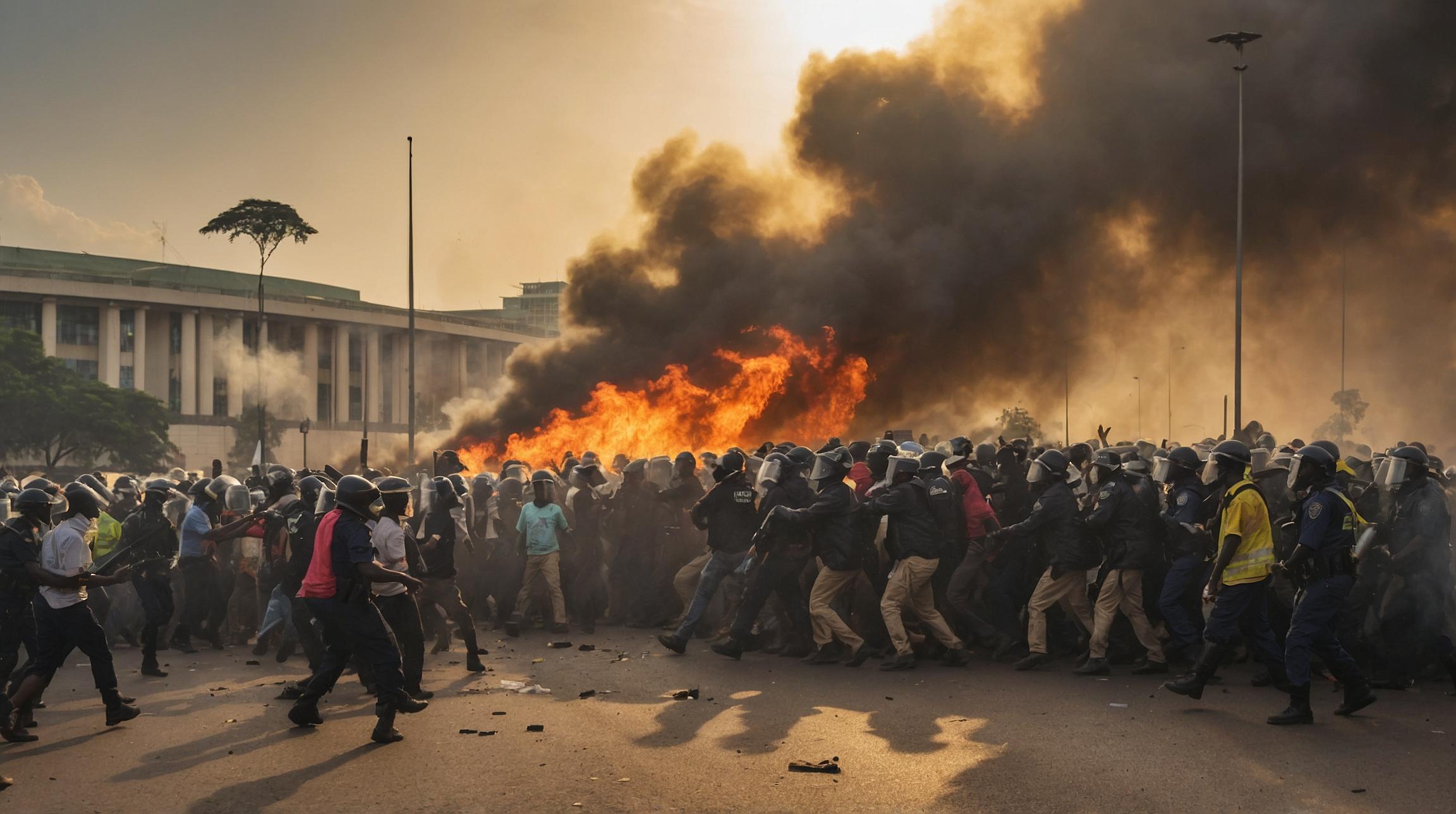Controversial Finance Bill Sparks Violent Protests in Kenya
Protests erupt after Parliament passes controversial finance bill; clashes see nearly 10 protesters dead, Parliament set on fire.
NAIROBI, Kenya – Violent protests have erupted across Kenya following the passage of a controversial finance bill by Parliament. The bill, which aims to raise taxes, has faced significant opposition from the public, leading to violent clashes with police and the death of nearly 10 protesters in the capital, Nairobi.
Protestors vs. Police: The Escalation
Soon after lawmakers approved the bill, demonstrators attempted to storm the Parliament building. Police responded with tear gas and water cannons but eventually opened fire when these measures failed to disperse the crowds. The unrest resulted in parts of the Parliament building being set on fire.
- Davis Tafari, a protestor, stated, "We want to shut down parliament and every MP should go down and resign. We will have a new government."
Protests also spread to several other cities and towns, showing a nationwide dissent against the bill.
What is the Finance Bill?
The finance bill is a piece of legislation aimed at increasing government revenue by raising taxes. Here's a simple breakdown:
- Taxes: The additional money people and businesses pay to the government.
- Finance Bill: Like a "budget plan" that details how the government will raise and spend money.
Why Are People Protesting?
Here are the main reasons:
- Increased Taxes: The bill plans to raise taxes, adding a financial burden on citizens already struggling with high living costs.
- Economic Struggles: Kenyans face multiple financial challenges, including:
- COVID-19 Impact: Job losses and economic slowdowns due to the pandemic.
- War in Ukraine: Higher prices for goods like fuel and food.
- Drought: Poor harvests and food shortages.
- Currency Depreciation: The value of Kenya’s money has decreased, making imports more expensive.
- Debt Crisis: Kenya owes money to lenders like the International Monetary Fund (IMF), who are urging the government to cut expenses. The finance bill aims to raise about $2.7 billion to help pay off these debts.
- Public Discontent with Leadership: Many protesters are also calling for the resignation of President William Ruto, who was elected nearly two years ago on promises to support Kenya's working poor.
Government's Response
To mitigate public backlash, the government has made some concessions, including:
- Scrapping Proposed Taxes on essential items like bread, cooking oil, car ownership, and financial transactions.
However, these measures have not satisfied the protestors, who remain resistant to the overall tax increases proposed by the bill.
What's Next?
The bill now moves to the President for signing. Should he have objections, he can send it back to Parliament. The passing of this legislation amidst severe public outcry has set the stage for potential further unrest.
SEO Keywords: Kenya finance bill, Kenya protests, parliamentary clashes, tax increases in Kenya, economic crisis Kenya, President William Ruto, International Monetary Fund Kenya, Kenyan currency depreciation, cost-of-living crisis Kenya, Kenyan debt crisis.
Calling attention to the social and financial implications of this controversial finance bill, the government’s next steps are crucial for the stability of the nation.













